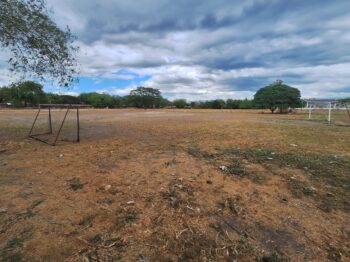This model uses hormonal induced heart rate increase as a measure of stress. The author tracks what happens to the body and the mind as heart rate increases. I'm sharing this today so that you too would go around tracking how fast your heart is going. Like, why just me, huh?
Siddle's original research data showed that a normal resting heart rate is between 60 to 80 beats per minute (bpm). The fear factor can induce the heart rate to go up. At 115 bpm, vasoconstriction sets in and fine motor skills deteriorate. Complex motor skills begin to deteriorate at 145 bpm. At 175 bpm, the following manifest: impaired cognitive processing, massive vasoconstriction, loss of peripheral vision (tunnel vision), loss of depth perception, loss of near vision, and auditory exclusion. At this level, gross motor skills, to include running and charging, are at their highest
performance level.
This condition also indicates an irrational flight or flight mode which may also manifest as freezing (inability to move) or the voiding of bladder and bowels. The element of fear should not be discounted here. Siddle has shown that exercise induced heart rate increases do not produce the same results. So you see, I really need to scare people to get their hearts hammering away. Then they can report to me the symptoms enumerated above.
When the heart is pumping so fast, it cannot draw in a full load of blood before pumping it back out. Past a certain point, as the heart rate increases, the level of oxygen provided to the brain steadily decreases. Thus, very rapid heart rate is counterproductive and a protracted experience of this condition only spells disaster for the individual.
Siddle's "thermometer scale" suggests that 115 to 145 bpm is the optimal survival and combat performance level for complex motor skills, visual reaction time, and cognitive reaction time. The deterioration of fine motor skills that results from the onset of vasoconstriction could be compensated by training for autopilot of muscle memory for tasks that require it. For example, dialling 911 on the phone is something the authors advise for all because when there's an intruder with a gun in the other room and one's heart is hammering away at 150 bpm, vasoconstriction causes the fingers to become cold and clumsy. Sensory input could become distorted and affect the mind's ability to make judicious decisions. Operating on autopilot generally leads to the production of responses that have been well-rehearsed.
Hormonal or fear induced performance and strength increases can achieve 100% of potential maximum within 10 seconds, but subsequently drops 55% after 30 seconds, 35% after 60 seconds, and 31% after 90 seconds. These findings are consistent with Selye's alarm reaction stage and the subsequent stage of resistance or adaptation, when coping efforts acclimatize the body to stress.
Siddle notes that any extended period of relaxation after intense sympathetic nervous system arousal can result in parasympathetic backlash. This includes significant drops in energy levels, heart rate and blood pressure, such as would characterize the Selye's stage of exhaustion. This can manifest as normal shock symptoms of dizziness, nausea, vomiting, and clammy skin, and profound sleepiness such as would have been experienced by the kidnappers of the USAID road contractors in Jolo last week after they had maxed out withdrawal on one of their victim's ATM card.
They slept so deep that their victims escaped. Amateurs. Mistakes like that happen to people who don't understand and haven't prepared for the effects of stress on their physiology.
Just as well. I'm sure the kidnap victims are glad that such indeed was the case.
(Wayward and Fanciful is Gail Ilagan's column for MindaViews, the opinion section of MindaNews. Ilagan teaches Social Justice, Family Sociology, Theories of Socialization and Psychology at the Ateneo de Davao University where she is also the associate editor of Tambara. You may send comments to gail@mindanews. com. "Send at the risk of a reply," she says.)
